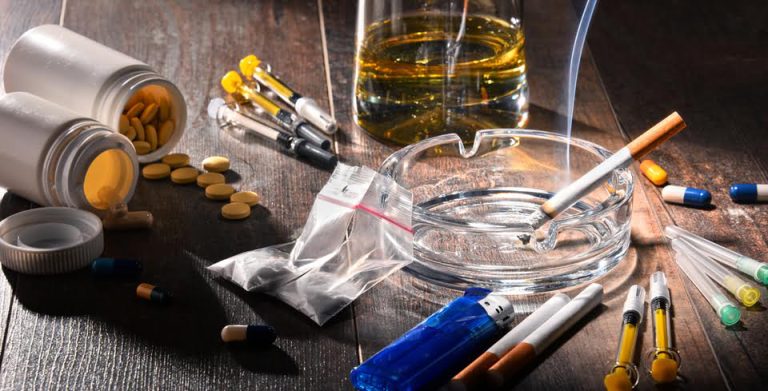
Content
One common sign of alcoholic hepatitis is jaundice, where the skin and whites of your eyes look yellowish. Watching a loved one endure the end stages of alcoholism can be frustrating and lonely. The feeling of powerlessness is stifling as you watch someone you care about slowly deteriorate physically and mentally while they may even continue to refuse to admit their drinking is problematic. For those who need help and don’t want it, intervention may be the only alternative. At this stage, drinking becomes everything in your life, even at the expense of your livelihood, your health and your relationships.

The final and most serious fifth stage of alcohol use is defined by the person only feeling normal when they are using alcohol. During this stage, risk-taking behaviors like stealing, engaging in physical fights, or driving while intoxicated increase, and they become most vulnerable to having suicidal thoughts. The most destructive form of alcoholism is chronic alcoholism, an emotionally, socially and physically devastating disease. Alcoholism emerges from alcohol abuse, when there’s a pattern of drinking despite negative consequences. Alcoholism and alcohol abuse are both categorized as alcohol use disorders—affecting people of all ages and stages of life.
Treatment professionals are trained to determine if an individual does or does not meet the requirements for a substance use disorder diagnosis. The criteria used for these evaluations come from the DSM-V-TR and provide an assortment of behaviors and situations that help to clarify if an individual does have a substance use disorder. Binge drinking and alcohol abuse can start in the teenage years or even earlier, though adults and the elderly may pick up the habit too.

People with alcohol use disorders drink to excess, endangering both themselves and others. The disease is common in people between 40 and 50 years of age. However, women may develop the disease after less exposure to alcohol than men.
For example, a usually calm person may become outgoing, aggressive or even impulsive while consuming alcohol. There are many misconceptions about alcoholism that make it sound like an alcoholic is an easy person to spot, however, many alcoholics function effectively and lead relatively normal lives. Alcohol overdose, called “alcohol poisoning,” is a potentially deadly, very serious consequence of drinking large quantities of alcohol in a relatively short period of time. If you suspect that you or someone you love has alcohol poisoning – this is a medical emergency. Alcohol-related disorders severely impair functioning and health.
Family interventions for alcoholism that tend to be effective for teens include multidimensional family therapy (MDFT), group therapy, and multifamily educational intervention (MFE). Longer-term residential treatment, often called rehab, of three to five months that addresses peer relationships, educational problems, and family issues is often used in treating alcohol use disorder in teens. Our mission at Eleanor Health is to help people affected by alcoholism live amazing lives. We deliver whole-person, comprehensive care and are passionate about transforming the quality, delivery, and accessibility of alcohol addiction & mental health treatment. Our actions are rooted in respect for each member’s values, culture, and life experiences, and our commitment to their wellbeing is unwavering and without judgement.
In fact, people with alcohol use disorder have an average lifespan that’s 24 to 28 years shorter than people without alcohol addiction. You’ll want to find a rehab center that has medically-supervised detox capabilities so that you can comfortably and safely detox from alcohol. There are inpatient and outpatient options, but an addiction specialist should determine the best level of care for you based on your individual needs. Effective addiction treatment providers will have addiction counselors, but they should also have mental health services as many people with alcoholism have co-occurring mental health conditions. Physicians may provide the people they evaluate with a quiz or self-test as a screening tool for substance-use disorders. Alcohol abuse, now included in the diagnosis of an alcohol use disorder, is a disease.
A wide range of psychiatric conditions—including depression, post-traumatic stress disorder, and attention deficit hyperactivity disorder—are comorbid with AUD and are associated with an increased risk of AUD. People with a history of childhood trauma are also vulnerable to AUD.
Alcohol, a legal way for people over the age of 21 to loosen up and have a good time is becoming an alarmingly common component to teen parties. Alcohol use and underage drinking, the usage of alcohol before the minimum drinking age of 21 years, among teens is on the rise. Teens are not always aware that alcohol, while a legal substance for those over the age of 21, poses greater risks and leads to more damaging effects that impact their own lives, communities, families, and health. Underage drinking is a widespread public health concern that poses far greater risks than any potential benefits.
Have a confidential, completely free conversation with a treatment provider about your financial options. Pancreatitis
Alcohol causes the pancreas to produce toxic substances that can eventually lead to pancreatitis, a dangerous inflammation and swelling of the blood vessels in the pancreas that
sober house
prevents proper digestion. Severe abdominal pain and persistent diarrhea, as a result, is not fixable. Once stabilized, the goal is to transition from detox, to treatment, to maintenance (practicing sober living by changing your life), to transcendence—the final step in the path to recovery.
Genetic factors make some people especially vulnerable to alcohol dependence. Contrary to myth, being able to “hold your liquor” means you’re probably more at risk — not less — for alcohol problems. Yet a family history of alcohol problems doesn’t mean that children will automatically grow up to have the same problems. Nor does the absence of family drinking problems necessarily protect children from developing these problems. Alcoholic liver disease is treatable if it is caught before it causes severe damage.